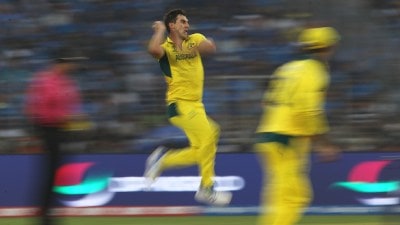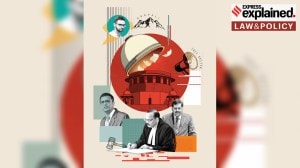The Last Liberal
You must remember that for a man like you to live in itself is a service to your country, for your life is not merely useful, but it is a li...

You must remember that for a man like you to live in itself is a service to your country, for your life is not merely useful, but it is a light to others. 8212; Rabindranath Tagore to G.K. Gokhale, December 1913
The reason for this relegation to the historical backbench is that Gokhale was a liberal in his political convictions, a strict constitutionalist in his methods, and a believer in the Raj as India8217;s salvation. So much easier to concentrate on say, Tilak, the leader of the extremists, an unquestionably heroic figure and a frequent guest of the imperial government8217;s prisons. Gokhale had to wait till 1977 for an attempt to rescue his reputation with B.R. Nanda8217;s magisterial biography. Now, Govind Talwalkar, former editor of the Maharashtra Times, has taken on the task of recreating Gokhale8217;s life, and originally published in Marathi. His journey through Gokhale8217;s writings, the observations of contemporaries, official documents and newspapers, pulling them all together to produce a likeness of the man, is exemplary.
Gokhale lost his father early, and received an education only thanks to the sacrifices of his brother and sister-in-law. Under the tutelage of Ranade, he became secretary of the Sarjavanik Sabha, where he got a thorough education in politics, economy and social problems. He also became a prolific journalist. In 1899, he became a member of the Bombay Legislative Council, and in 1902, of the Imperial Legislative Council. Here, he unleashed the full range of his intellect. Gokhale targeted anything that smacked of bad governance and made major speeches on education and social reform. He regularly called for the association of Indians with government, a plea which fell on deaf ears. His success was due to his full command of the facts, his ability to make his point in quiet but trenchant tones, and his transparent honesty and dedication. Even Lord Curzon bowed before his parliamentary ability.
In 1905, he founded his lasting legacy, the Servants of India Society, and also became Congress president. He was immediately engaged in a battle over the direction that politics should take, with his opponents calling for militant methods to coerce the British. He lost to Tilak, his old friend and colleague, and lately, his enemy, and ceased to be a political force. History is ironic. Gokhale was politically a moderate and socially an extremist. Tilak, on the other hand, was a political extremist and a social conservative.
It is, today, perhaps easier for us to appreciate that if the political moderates had not existed, the extremists never would8217;ve been. Given the time and the circumstances, it is easy to see why Gokhale was a moderate 8212; it was the only way he felt he could put forward his view, and be listened to.
- 01
- 02
- 03
- 04
- 05































